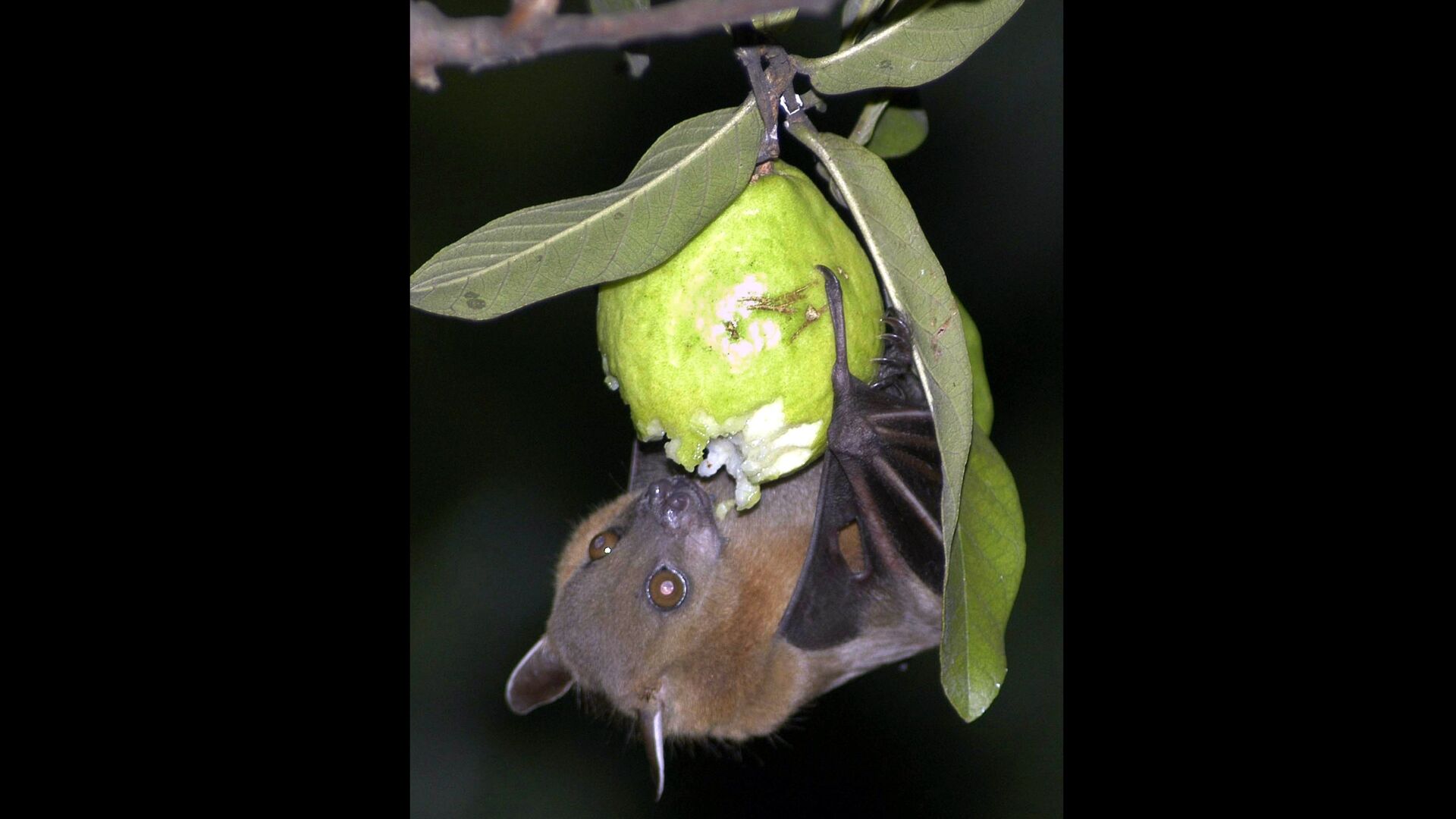https://sputnikglobe.com/20210913/deadly-nipah-virus-emerges-in-india-could-become-global-problem-similar-to-covid-media-warns-1089038415.html
Deadly Nipah Virus Emerges in India, Could Become Global Problem Similar to COVID, Media Warns
Deadly Nipah Virus Emerges in India, Could Become Global Problem Similar to COVID, Media Warns
Sputnik International
While the average transmission rate of the Nipah virus does not seem to be particularly high, a professor of infectious disease at Stanford University argued... 13.09.2021, Sputnik International
2021-09-13T16:35+0000
2021-09-13T16:35+0000
2021-09-13T16:35+0000
threat
virus
transmission
https://cdn1.img.sputnikglobe.com/img/106492/38/1064923896_0:26:3352:1912_1920x0_80_0_0_85bf787414a14a22793b08ed7ff33396.jpg
As the recent outbreak of the deadly Nipah virus in India, which already claimed the life of a 12-year old boy in the state of Kerala, NPR warns that this deadly pathogen remains a concern for the whole world.The virus is carried by fruit bats and can be contracted by humans, with the infected humans being potentially capable of spreading the virus to other people, the media outlet points out.Dr. Stephen Luby, a professor of infectious disease at Stanford University, reportedly explained that while there are “occasional Nipah superspreaders who infect a lot of people”, the average transmission rate of the virus is “less than one person per infection”.Luby noted, however, that “since 70 percent of people who are infected with Nipah virus die, such a strain could represent the worst pandemic humanity has ever faced", and stressed the importance of continuing to “invest in strategies to reduce the risk of spillover and to develop countermeasures across a range of high-risk pathogens".While a vaccine for the Nipah virus has yet to be developed, Luby mentioned that there are several “promising” vaccine candidates out there that “have demonstrated high efficacy in animals."Meanwhile, Dr. K. Puthiyaveettil Aravindan, a former professor of pathology at the Government Kozhikode Medical College, has voiced concerns over the future spread of the virus, arguing that “Kerala can’t be the only hot spot.”Aravindan also mentioned the possibility of genetic changes in the virus, which may make the pathogen more transmissible among humans and allow it to make hosts out of new species of bats.He also warned that Nipah virus could potentially become a global problem akin to COVID “due to international trade, global travel and climate change that causes bats to seek new habitats”, as the media outlet puts it.
https://sputnikglobe.com/20210913/scientists-suggest-studying-impact-of-exotic-fruits-amid-nipah-virus-outbreak-in-india-1089029670.html
Sputnik International
feedback@sputniknews.com
+74956456601
MIA „Rosiya Segodnya“
2021
News
en_EN
Sputnik International
feedback@sputniknews.com
+74956456601
MIA „Rosiya Segodnya“
Sputnik International
feedback@sputniknews.com
+74956456601
MIA „Rosiya Segodnya“
threat, virus, transmission
threat, virus, transmission
Deadly Nipah Virus Emerges in India, Could Become Global Problem Similar to COVID, Media Warns
While the average transmission rate of the Nipah virus does not seem to be particularly high, a professor of infectious disease at Stanford University argued that “each time a person is infected, the virus is in an environment that selects for human adaptation and transmissibility”.
As the recent
outbreak of the deadly Nipah virus in India, which already claimed the life of a 12-year old boy in the state of Kerala, NPR warns that this deadly pathogen remains a concern for the whole world.
The virus is carried by fruit bats and can be contracted by humans, with the infected humans being potentially capable of spreading the virus to other people, the media outlet points out.
Dr. Stephen Luby, a professor of infectious disease at Stanford University, reportedly explained that while there are “occasional Nipah superspreaders who infect a lot of people”, the average transmission rate of the virus is “less than one person per infection”.
"However, each time a person is infected, the virus is in an environment that selects for human adaptation and transmissibility. The risk is that a new strain that is more efficiently transmitted person-to-person could generate a devastating outbreak,” he said.
Luby noted, however, that “since 70 percent of people who are infected with Nipah virus die, such a strain could represent the worst pandemic humanity has ever faced", and stressed the importance of continuing to “invest in strategies to reduce the risk of spillover and to develop countermeasures across a range of high-risk pathogens".

13 September 2021, 14:40 GMT
While a vaccine for the Nipah virus has yet to be developed, Luby mentioned that there are several “promising” vaccine candidates out there that “have demonstrated high efficacy in animals."
Meanwhile, Dr. K. Puthiyaveettil Aravindan, a former professor of pathology at the Government Kozhikode Medical College, has voiced concerns over the future spread of the virus, arguing that “Kerala can’t be the only hot spot.”
"It's possible that the health system in other states may not be catching these infections at all," he said.
Aravindan also mentioned the possibility of genetic changes in the virus, which may make the pathogen more transmissible among humans and allow it to make hosts out of new species of bats.
He also warned that Nipah virus could potentially become a global problem akin to COVID “due to international trade, global travel and climate change that causes bats to seek new habitats”, as the media outlet puts it.




